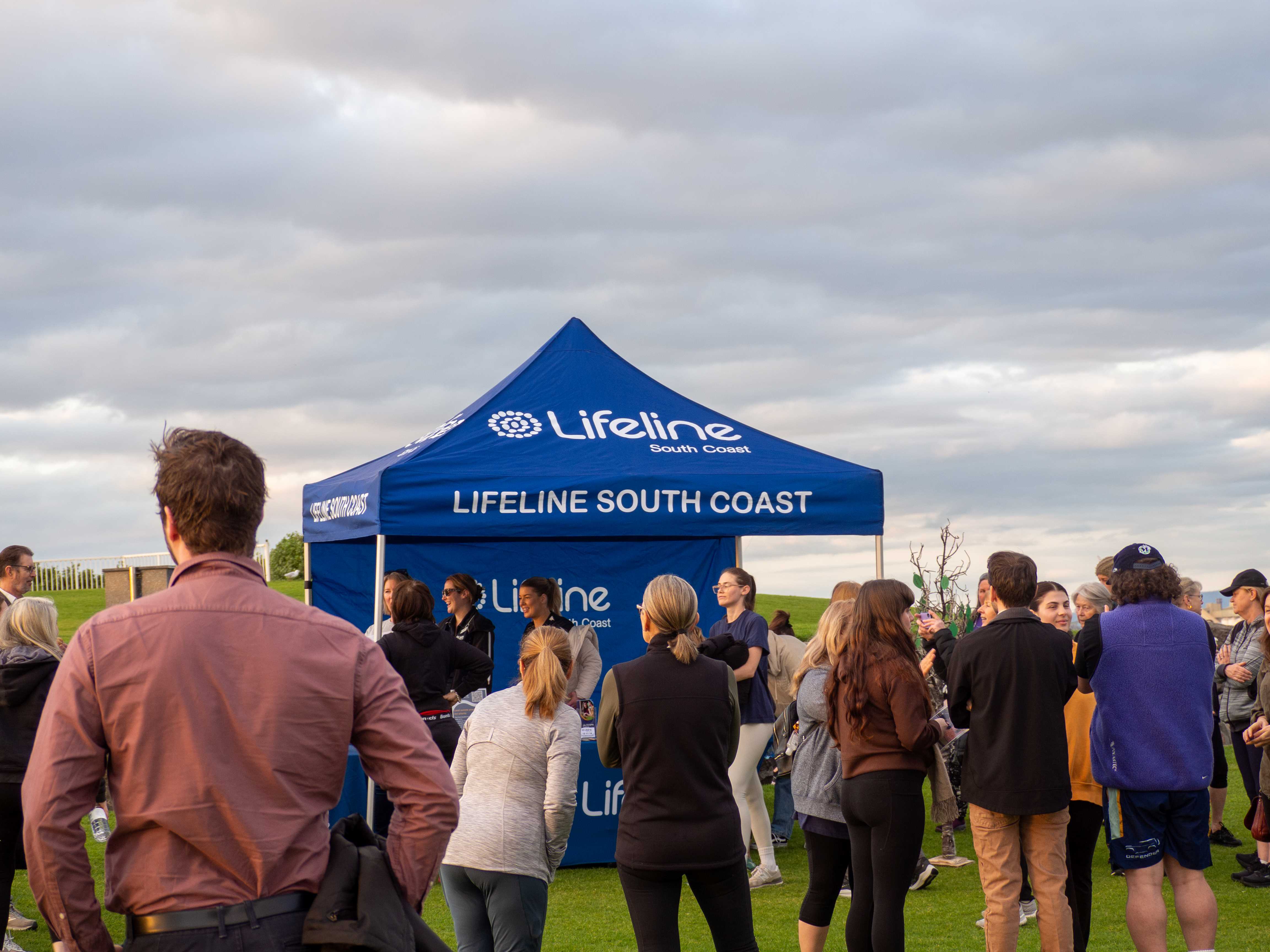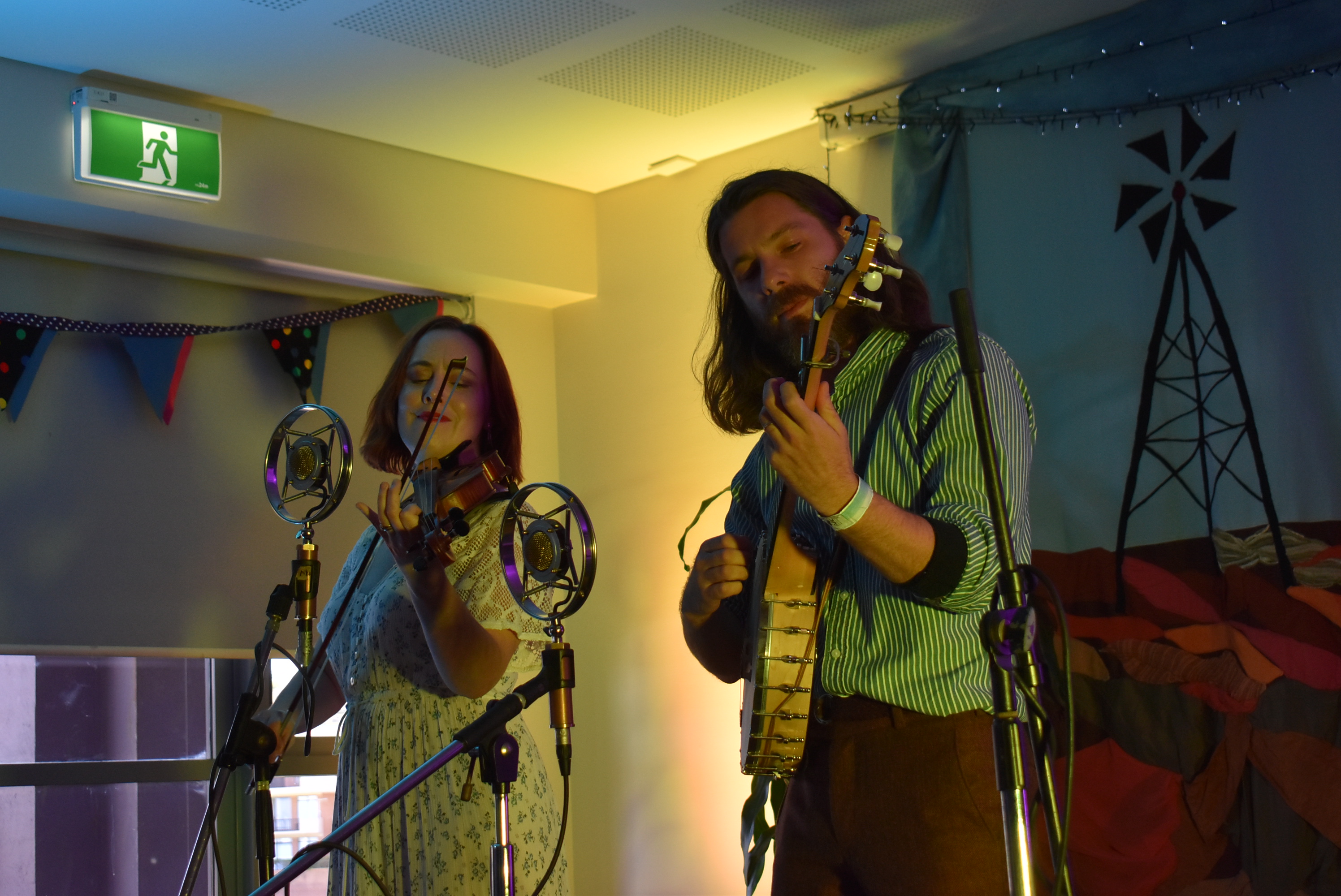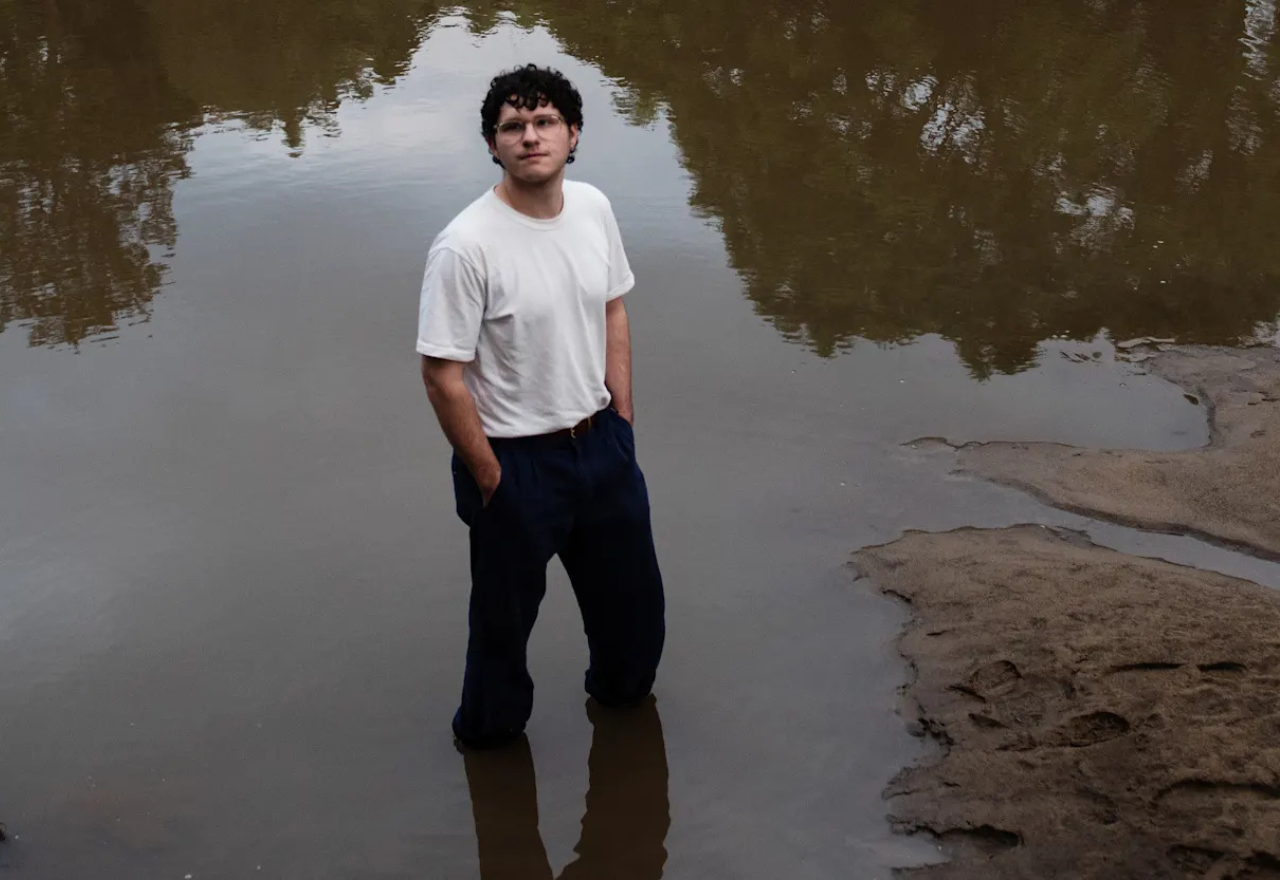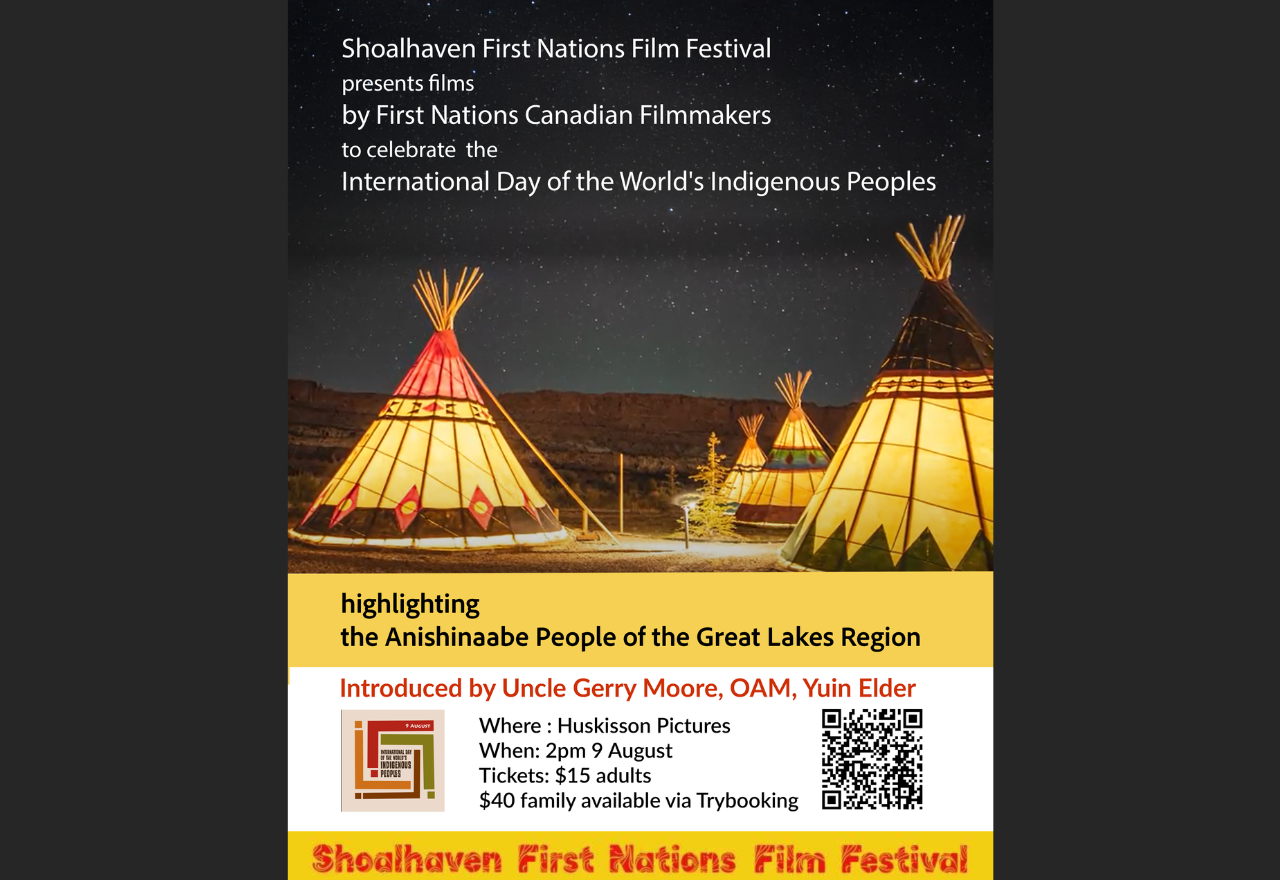Shoalhaven First Nations Film Festival features Australia’s first musical documentary
Lleyton Hughes
11 September 2025, 1:00 AM
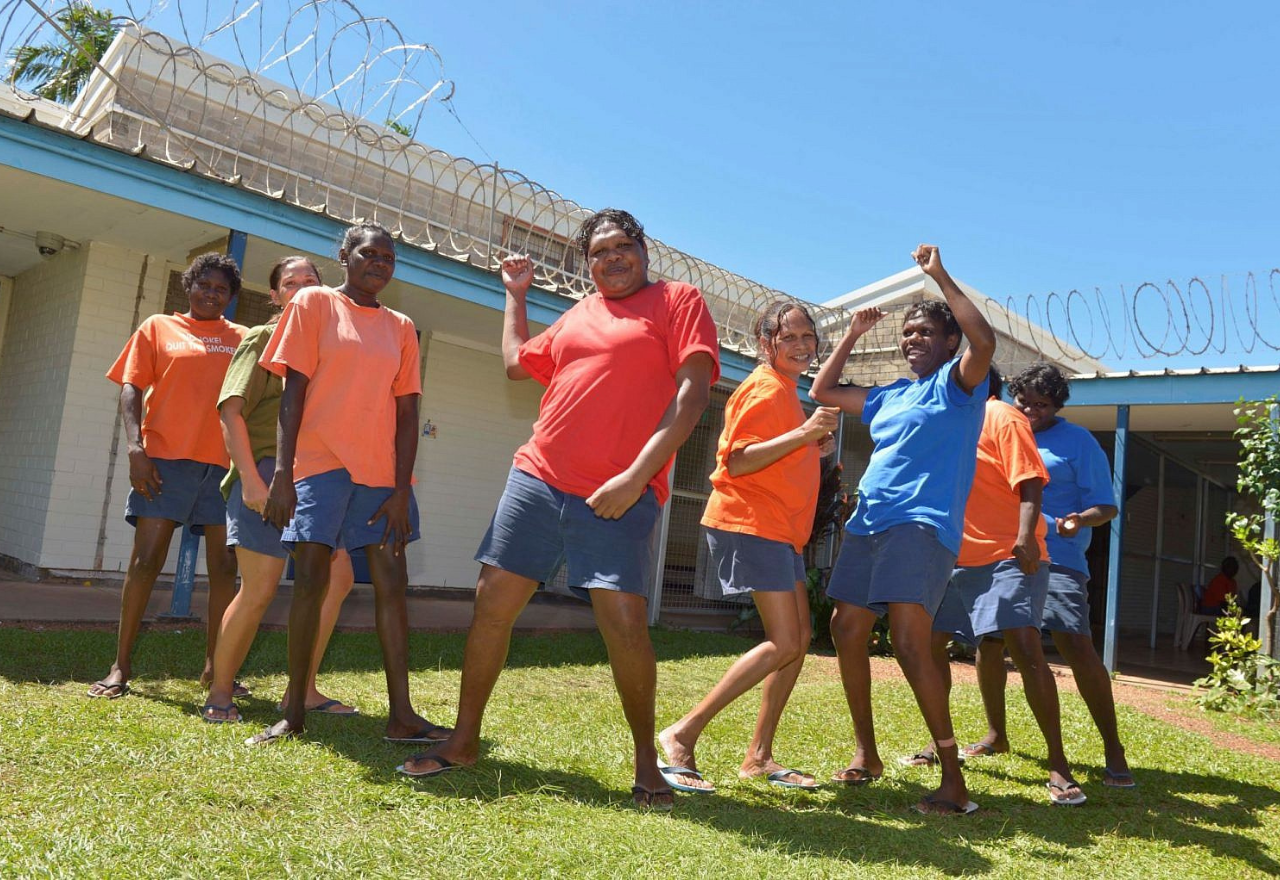 Prison Songs poster. Photo: David Silver
Prison Songs poster. Photo: David SilverThe Second Annual Shoalhaven First Nations Film Festival will take place at Huskisson Pictures on Saturday (13 September), showcasing a remarkable collection of films by First Nations filmmakers.
One of the standout features is the groundbreaking 2015 documentary-musical Prison Songs, which tells the stories of inmates inside Berrimah Prison in Darwin - not through talking heads, but through powerful original songs performed by the prisoners themselves.
In an Australian first, inmates express their experiences, regrets, and reflections through music - offering an emotionally resonant glimpse behind the prison gates.
As of 2024, First Nations people make up 36% of Australia’s prison population, despite representing only about 3.8% of the overall population.
Writer and director Kelrick Martin, a Ngarluma man from Broome in Western Australia, says the idea for Prison Songs came from a desire to humanise those confronting statistics.
“We all know First Nations people are overrepresented in the prison system, both juvenile and adult,” Martin said.
“But for me, the question was: how do we get people to really understand that? How do we humanise those numbers?”
The answer, for Martin, was music.
“The idea of using songs was a unique way to tell those stories,” he said. “We worked with Brian Hill, a hugely influential UK filmmaker who made Feltham Sings, a musical documentary inside a British prison.
"We teamed up with him to create an Australian version with a strong First Nations focus - particularly in the Northern Territory, where overrepresentation is staggering.”
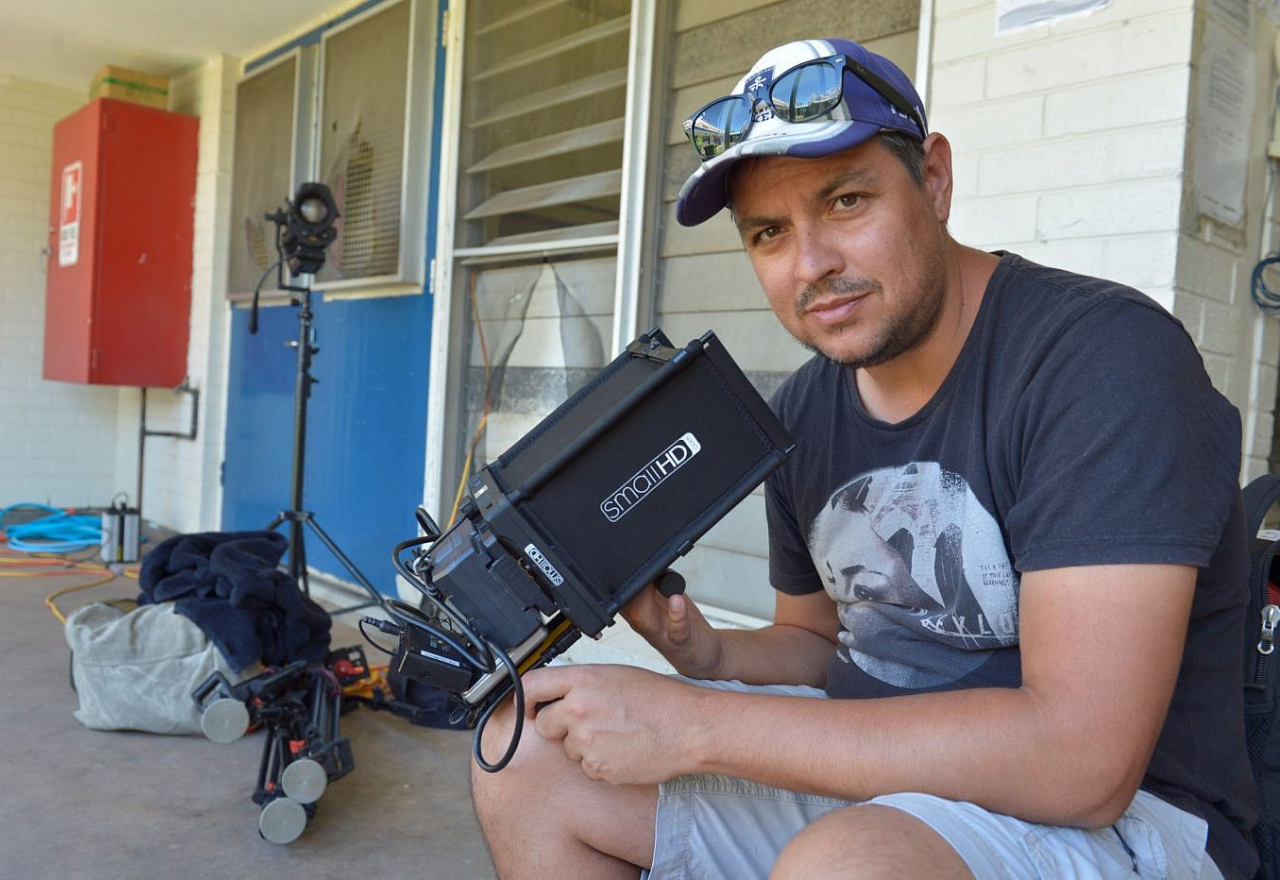
Director Kelrick Martin, sitting outside of Main Prison Laundry with a monitor. Photo: David Silver
Importantly, Hill wasn’t there to take over.
“Brian didn’t tell us what to do - he helped us navigate the hurdles. And I think what came out of it is one of the most innovative projects I’ve worked on.”
Martin and his team spent time inside Berrimah Prison, holding auditions - not for musical talent, but for stories.
“We auditioned people based on their lived experiences,” said Martin. “We wanted a diverse cross-section of voices from across the prison.”
From there, musicians including Shellie Morris worked closely with the inmates to help shape songs that reflected their own personal journeys.
“Often, they didn’t even realise the lyrics were based on their own stories - until they were performing them,” Martin said. “That made it all the more powerful.”
The result is a documentary unlike any other - moving, defiant, and deeply human. And while Martin doesn’t believe a single film can fix systemic injustice, he does believe it can spark necessary conversations - and provide something meaningful for the people involved.
“Look, I don’t think one film can fix the system. But it can start a conversation,” he says. “And for the inmates, just being involved in something creative - seeing themselves onscreen in a new way - that can be powerful. If it gave them a moment of pride, or helped them reflect, then I’m grateful for that.”
For Martin, Prison Songs was the culmination of a career grounded in First Nations storytelling.
“My first role in this space was working for a local Aboriginal radio station in Broome, where my family lives,” he said.
“I took the job to earn a bit of money, but I just naturally fell into storytelling — especially from a First Nations perspective.”
From there, his path led to the ABC, and eventually to film.
“I moved from one opportunity to the next, always trying to learn more - and always with the idea of ‘First Nations first’,” he said. “I wanted to break down misconceptions and tell our stories in fresh, meaningful ways.”
He found that film offered him a uniquely intimate power.
“When you make a film, people connect. Not like a conversation or a newspaper article. You see someone onscreen and suddenly that person becomes real. You’re not just absorbing stats - you’re connecting with a human being.”
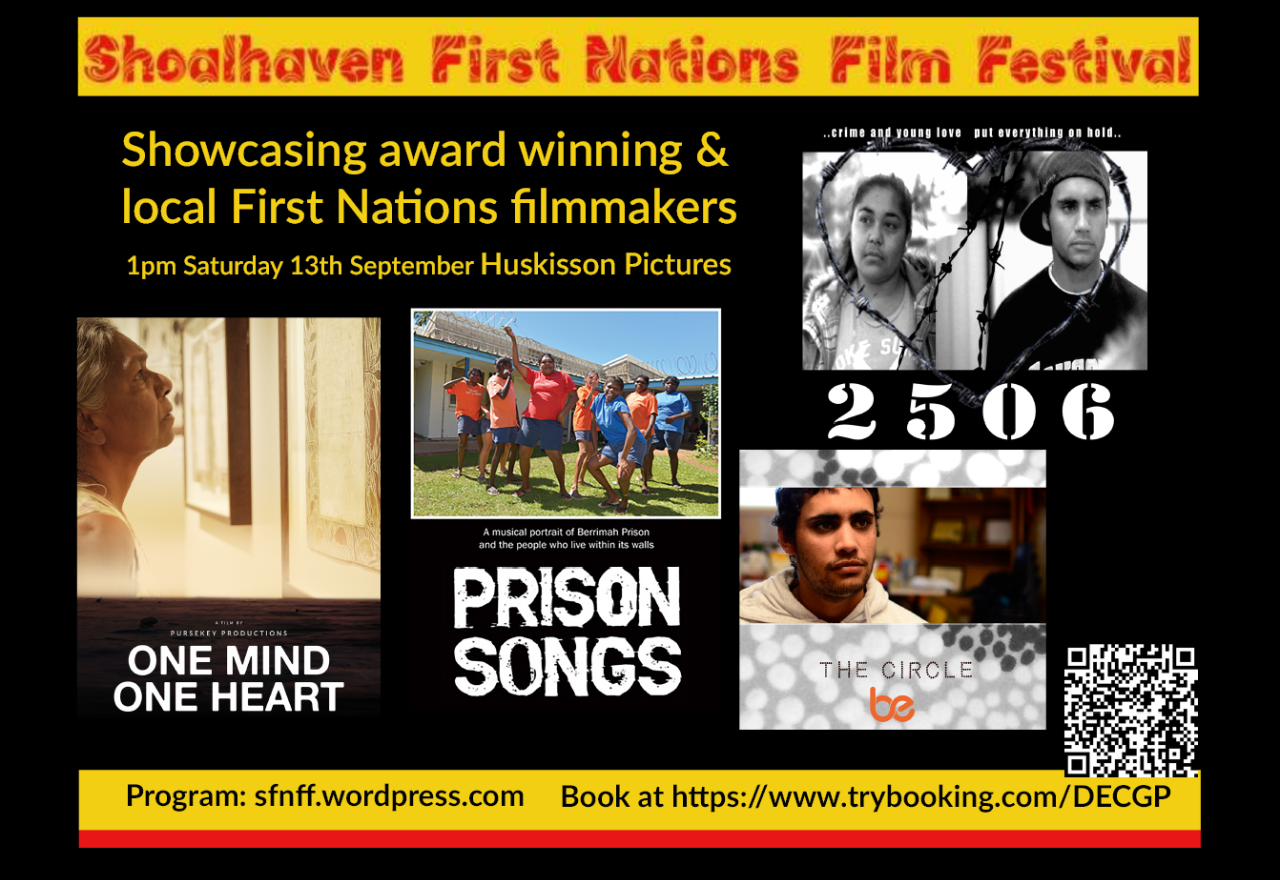
The poster for the Shoalhaven First Nations Film Festival
Sadly, a decade after its release, Prison Songs is still just as relevant.
“If anything, things have gone backwards,” Martin said. “But this film was never about changing legislation. It’s about capturing a moment in time - sharing a story, and hopefully shifting someone’s perspective. Maybe making them think twice before saying something careless or cruel. That might be enough.”
Prison Songs screens as part of the Shoalhaven First Nations Film Festival on Saturday 13 September at Huskisson Pictures. Tickets are available online. Martin hopes locals will give it a chance:
“Come along - it’ll surprise you. Festivals like this are where you see something fresh, exciting, unexpected,” he says.
“You’re not getting a Marvel film - you’re getting something real. If you love stories, and you want to understand more about this country and its people, this is your chance. Give it a go.”
NEWS
